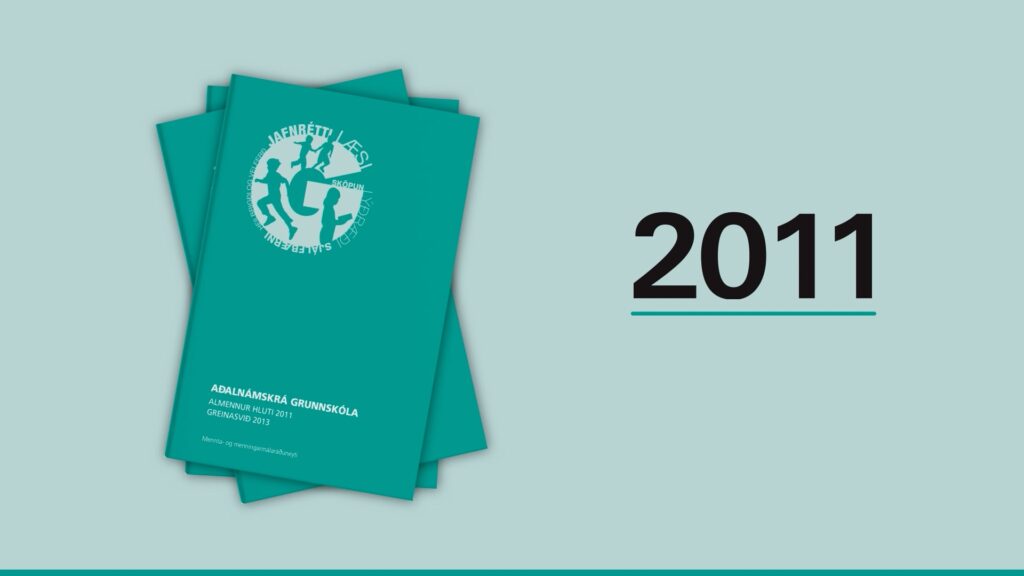Supporting Materials
Organization of learning and teaching
Curriculum focuses
Assessment and testimony
Home
National Curriculum GuideNational Curriculum Guide
The National Curriculum Guide sets out the government’s instructions on school policy, what the schooling of children and young people should be aiming for and what knowledge, skills and abilities the government considers important for the future. The National Curriculum Guide is a guide that guides all education and teaching in schools.
The National Curriculum is presented in a general section on the one hand and in subject areas on the other.
The general section lays the foundation for the role of schools, the professionalism of teachers, and a vision for general education. It includes strategic focus areas such as the basic elements of education, the main emphases in learning and teaching, the content and organization of learning, the organization of assessment, and the evaluation of school work.
The subject areas provide a more detailed discussion of the competencies that are aimed for through school work within a specific field of study or subject. This is presented in the curriculum as competency criteria.
Key competences are related to all areas of study and present the competences that are intended to promote the all-round development of students. The subject areas and key competences are presented in a coherent manner. The educational value and main purpose of the subject or field are discussed and competence criteria are presented that should be achieved by the end of the 4th, 7th and 10th grades. Each subject or subject area is accompanied by a chapter on teaching methods and assessment, and finally assessment criteria are presented at the end of compulsory school. Assessment criteria have also been presented for Icelandic, mathematics and foreign languages at the end of the 4th and 7th grades.
